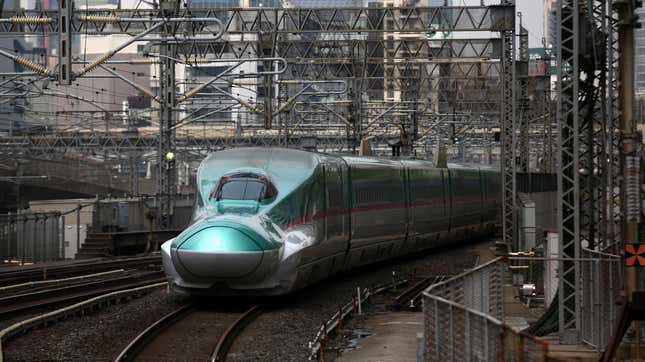
Japanese rail company JR Kyushu says that one small slug was responsible for a power outage and subsequent delays for an estimated 12,000 commuters on a high-speed rail line in Kyushu on May 30, CNN reported on Monday.
Some 26 separate trains were canceled at around 9:40 a.m. local time due to the power outages, which company engineers now say was caused by a 0.7 to 1.1 inch (two to three centimeter) slug which made the ill-fated decision to crawl across a power cable in electrical equipment connected to the network. It then fried, taking out part of the electrical grid with it.
“We have not heard of power outages caused by slugs in recent years,” a JR Kyushu spokesperson told CNN on Monday, adding that the slug had apparently crawled through a gap in a power box. “If we find such a gap when inspecting equipment (in the future), we will fix them.”
According to CNN, JR-Kyushu had quickly identified the cause of the outage, but did not release the information for over three weeks. Local media only found out over the weekend.
Wildlife finding its way into power equipment is a relatively common cause of outages, though in a separate statement to AFP-Jiji, a company official said that they more commonly experience problems like “deer colliding with trains,” “not a problem with slugs.” Last year, human body parts were discovered lodged in a crack in the front of a JR-West bullet train some 20 miles after a collision, with authorities reportedly treating the matter as a suicide.
Correction: A previous version of this article, citing CNN, incorrectly named the railroad involved in the incident. It is JR Kyushu. We regret the error.